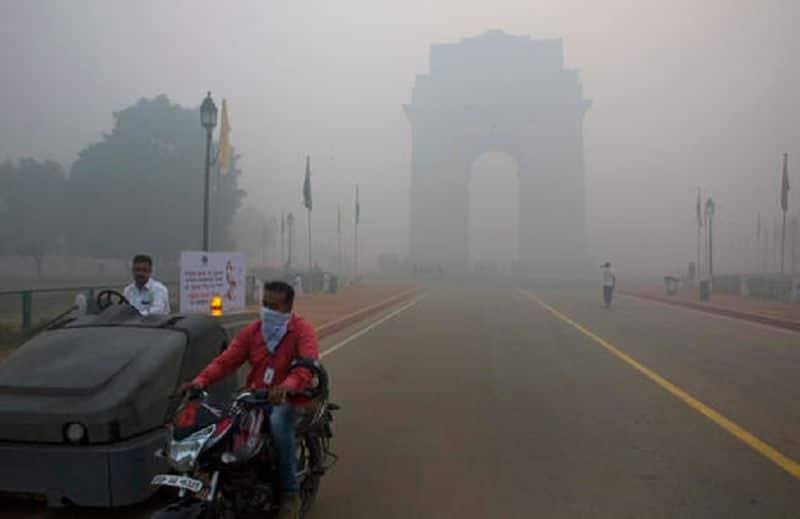Though many believe otherwise, humans have done a lot of harm to planet Earth. We give you five reasons why World Earth Day, where we recognise the danger posed to the planet, cannot be a celebration.
Bengaluru: Monday, April 22 has been celebrated as World Earth Day for 49 years. The first celebration was held in 1970. In the year, at least 20 million Americans protested oil spills, industrial pollution, toxic dumps, pesticides and wildlife extinction.
However, after 49 days, the reason to remember World Earth Day is the same. The problems that marred America 49 years ago affect the entire world today.
So, here are five reasons why World Earth Day must not just be a celebration and should instead be a warning.
1. Increasing air pollution
Considering the Indian scenario, there are more than 250 million vehicles across the country and the pollution level has multiplied especially in all four major cities of India. Among them, New Delhi has crossed all safety standards and the state is considered the most polluted (air) in India, closely followed by Bengaluru. Along with this, the growing number of industries have also caused a great deal of damage.

2. Global warming
Many people believe that the entire world is facing the brunt of global warming. The condition is caused majorly by increase of carbon dioxide in the atmosphere. The moist damage happens when coal, oil, and natural gas are burned to generate electricity or to run vehicles.
Carbon dioxide is one of the main gases responsible for the absorption of infrared radiation, that causes harm to the humans and affects the environment.

3. Loss of biodiversity
Global warming leads to a major change in environment, affecting the biodiversity of the Earth. Plants, animals, birds and all kinds of species are in a danger. Many species among flora and fauna are on the verge of extinction.

4. Soil degradation
The excess use of pollutants, chemicals, pesticides and toxic elements have caused degradation of soil quality. There is the loss of organic matter, loss in soil fertility, loosening of soil resulting in soil erosion. The danger arises when there are adverse changes in the salinity, acidity in the soil and makes organic growth impossible and thus increases the dependence on chemical fertilizers. These toxins also enter the body of those who consume products.

5. Overpopulation
The Earth is not only home to humans. It houses all kinds of species, green cover, water and components of the environment. But with the ever-increasing population, more space is occupied by humans and their structures. Furthermore, this demands an increase in the number of industries, vehicles and usage of land and water. This in turn has an affect on all other species, many of which already face extinction. Many predictions indicate that the ever-increasing human population will in turn have to bear the brunt of the change in factors that have sustained the functioning of the planet to keep us alive.
Last Updated Apr 22, 2019, 1:34 PM IST










![Salman Khan sets stage on fire for Anant Ambani, Radhika Merchant pre-wedding festivities [WATCH] ATG](https://static-ai.asianetnews.com/images/01hr1hh8y86gvb4kbqgnyhc0w0/whatsapp-image-2024-03-03-at-12-24-37-pm_100x60xt.jpg)
![Pregnant Deepika Padukone dances with Ranveer Singh at Anant Ambani, Radhika Merchant pre-wedding bash [WATCH] ATG](https://static-ai.asianetnews.com/images/01hr1ffyd3nzqzgm6ba0k87vr8/whatsapp-image-2024-03-03-at-11-45-35-am_100x60xt.jpg)


